Cats are natural explorers, they love to roam and many spend their lives outdoors. Outdoor cats (also called stray, feral, homeless or community cats) cope well with living outside however they tend to benefit from the support of humans too.
A little bit of support can go a long way in helping outdoor cats be more comfortable, particularly during the colder weather.
This article includes practical ways you can help your friendly community cats live safe, long and healthy lives.
Contents
Practical Ways to Help An Outdoor Cat
Seeing cats that are living outside around the neighborhood can stir up emotions and many of us feel a desire to help them however we can.
While most of us are not in a position to scoop the cats up and take them home (as much as we’d like to), there are ways we can help the cats exactly where they are.
These 5 practical tips will help keep the local population of outdoor cats healthy and happy:
1. Offer Food
Putting out food for the cats can help them conserve energy and keep warm when the weather is cold.
Either wet or dry food is great, wet food is easier for them to digest but dry food will last longer and will attract less flies if it doesn’t get eaten straight away.
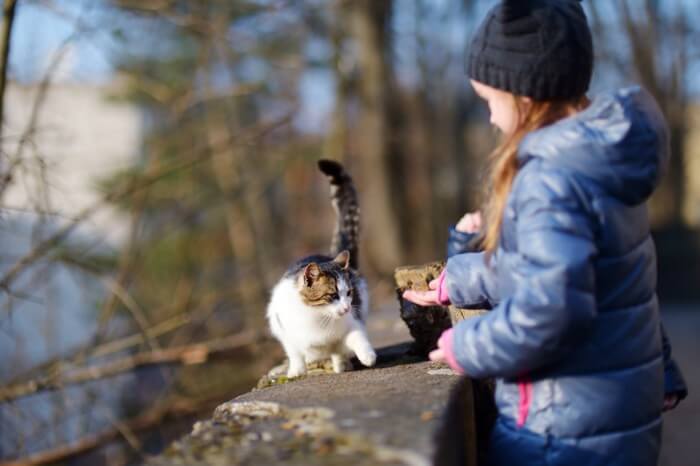
Dry food will also not freeze in cold temperatures while wet food may. Offering food each day can help keep the cats healthy and will reduce the likelihood of the cats becoming sick from eating rodents that are diseased or infected with parasites.
2. Offer Water
Putting out fresh water on a daily basis will also help keep outdoor cats healthy. Deep bowls won’t freeze as quickly but if possible, putting a pet water fountain out is a great option.
A water fountain will not only encourage the cats to drink the freshwater and stay hydrated but it will also help prevent the water from freezing so quickly during winter.
Changing the water each day (even twice a day during harsh weather) will make sure the cats stay hydrated and healthy.
If the temperature is very cold, put out hot or warm water as this will help prevent freezing for longer.
3. Get the Cats Spayed or Neutered
If possible, catching the cats and getting them spayed or neutered is very important. Some humane societies such as Cats Protection carry out trap-neuter-return programs for feral cats.
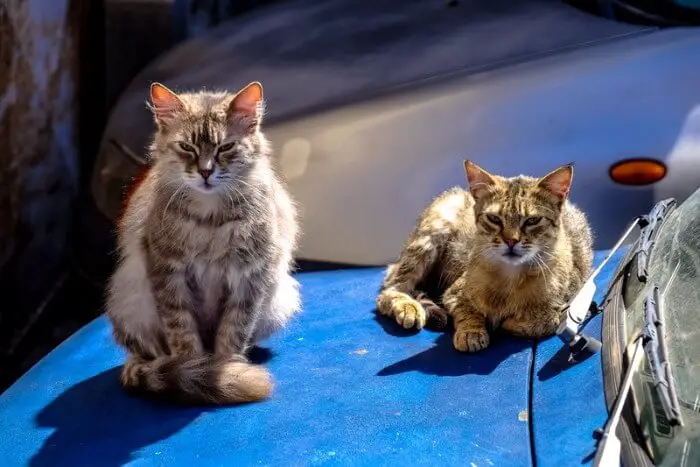
This will help reduce the risk of the cats fighting and will improve their overall health and wellbeing. It will also help to reduce the growth of the outdoor cat population and will prevent the spreading of diseases.
4. Make a Shelter
It is likely the cats already have somewhere that they like to sleep and relax but they may sometimes wander off in search of more protected areas, cats may often choose to live outside in a shed or garage however there is always a danger that they can get trapped or stuck there.
Offering them a basic shelter can help keep them safe. It does not need to be anything elaborate, it should simply be a spot that reduces the exposure to wind, rain and snow to give the outdoor cats more shelter options that can help them to stay safe and warm.
Ideally, the shelter door should only be big enough for cats and you could even put a door flap over it to help keep warmth in and predators out. The shelter should also be slightly elevated and it helps keep warmth in if it is insulated with straw.
If you don’t want to actually make a shelter you can put out an old pet transport box or litter box that is covered and lined or you could even buy a purpose-made outdoor cat house. After you put the shelter out, check it routinely to make sure it is still dry and in good condition.
If you’ve made a shelter and you’ve noticed the cats aren’t utilizing it, see if there is a way you can make some improvements to their preferred sleeping area to help keep them warm and comfortable.
Simple options include putting down straw or putting up a windbreak for them.
5. Create a Feeding Station
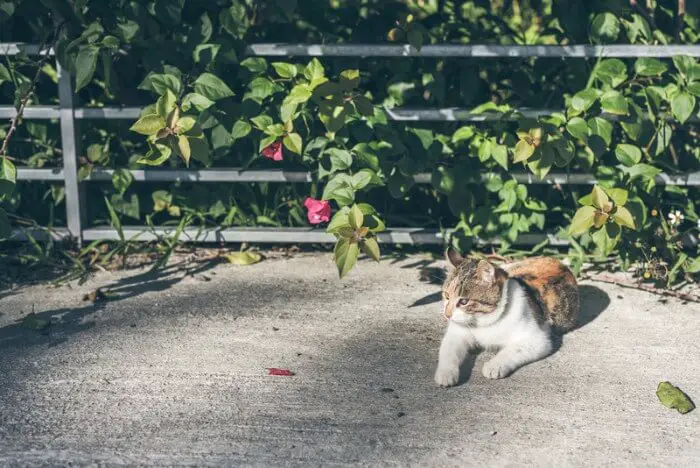
In addition to a sleeping shelter, a feeding station is a great idea if you are feeding outdoor cats in the same place each time.
A feeding station can protect the cats as well as the food and water you put out from the weather.
If you live somewhere where the winters are very harsh you could put a microwavable heating pad under the bowls in the feeding station, this will help prevent freezing and can make the shelter a little bit warmer and more comfortable for the cats.
The heating pad is also a good idea for adding warmth to the sleeping shelter. It is best to avoid placing the feeding station close to the sleeping shelter as it can cause conflict between cats, try to place it a short distance away in a quiet spot that is far from busy roads.
Risks Cats Face When Living Outside
While the cats are resilient and well-suited to living outdoors there are a number of risks they face each day.
According to UC Davies Veterinary Medicine, indoor cats live on average 15 years while outdoor cats live on average 2-5 years. As you can see, outdoor cats have a considerably shorter life span and this is mainly due to the following risks:
1. Cars
Traffic and busy roads is one of the most obvious and dangerous risks. If you live in a quieter area this might not be as much of a concern but the risk is still present.
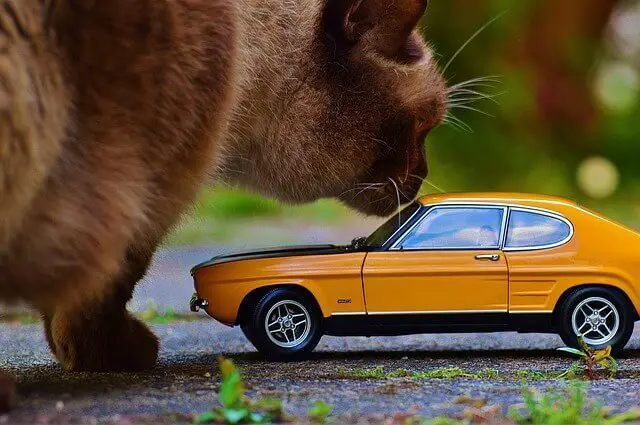
Kittens tend to be more at risk as older cats are more street-wise and aware of the dangers. Even road-aware cats can be blinded by car headlights and unable to get out of the way when wandering around at night.
2. Getting trapped or lost
It is not uncommon for cats to shelter in sheds or garages and then get locked in by accident, sometimes cats also stray too far from home and lose their way.
3. Sleeping on or under cars
During colder weather, outside cats tend to spend time on car wheels or under car bonnets for warmth.
This poses a number of risks which is why ensuring the cats have a warm shelter is important.
4. Higher risk of parasites, infections and diseases
Outside cats are more exposed to health problems and parasites. They are also more likely to come across toxic material such as rat poison or slug pellets.
Minimizing the Risk for Outdoor Cats
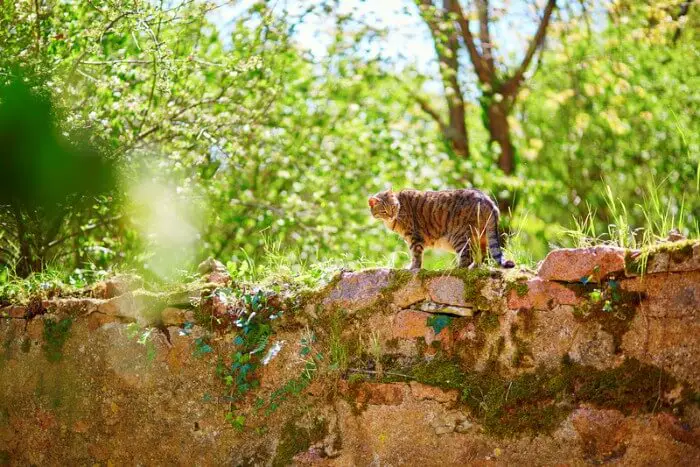
In addition to the practical tips given above, there are some simple ways you can help keep outdoor cats safe:
1. Check your car before starting
Cats like to sleep on or under cars when the weather is cold. Before you start your car, tap the hood a couple of times and check your tyres and wheel wells to make sure there is not a cat resting underneath or on your car.
2. Avoid using chemicals such as antifreeze and pesticides
Making a simple switch in the products you use can help keep outdoor cats safe. Most antifreeze is toxic and even deadly for cats.
Try to find brands that are safer for animals, for example use propylene glycol to de-ice rather than ethylene glycol as although it can still be harmful it is a less toxic option.
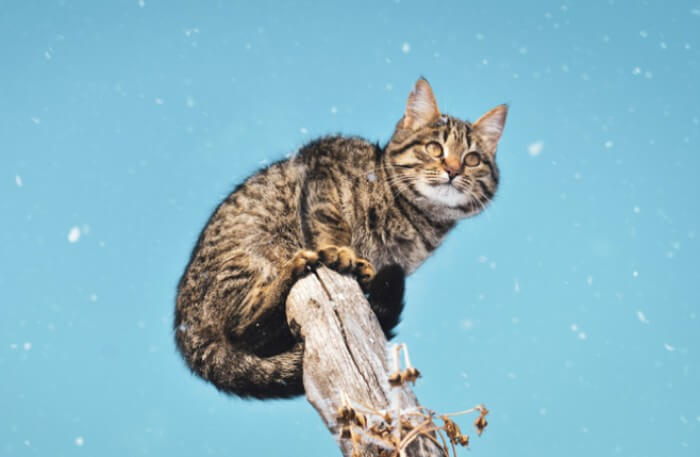
3. Avoid using salt to melt snow
Don’t use salt or chemicals on the ground during snowy or icy weather, this can be deadly for cats if they accidentally ingest it (this can happen when they clean their paws or when the drink from puddles).
Salt and chemicals can also damage cat’s paw pads so it is best to find pet-friendly alternatives that do the same job but without the risk.
4. Check your shed before you close it
Before you lock up your garage or shed, always check to make sure there are no cats inside.
Cats are known for being wanderers and they often find their way into sheds when searching for shelter, simply double-checking before you lock up is an easy way you can keep community cats safe.
5. Cover garden ponds and water collection points
If you have any water sources in your garden, you can make them more cat friendly by covering them with wire mesh or ensure the edges are low enough so if a cat did fall in they could make their way out again.
Living outdoors can be challenging for cats, particularly during the colder weather but with a little help from friendly neighbours can go a long way to ensure they live long, happy and healthy lives.
As an Amazon Associate I may earn a small fee from qualifying purchases at no extra cost to you. This helps us run the site, so thanks for your support!



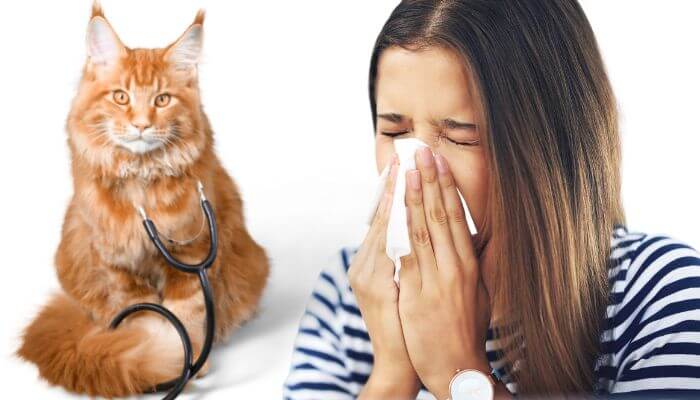
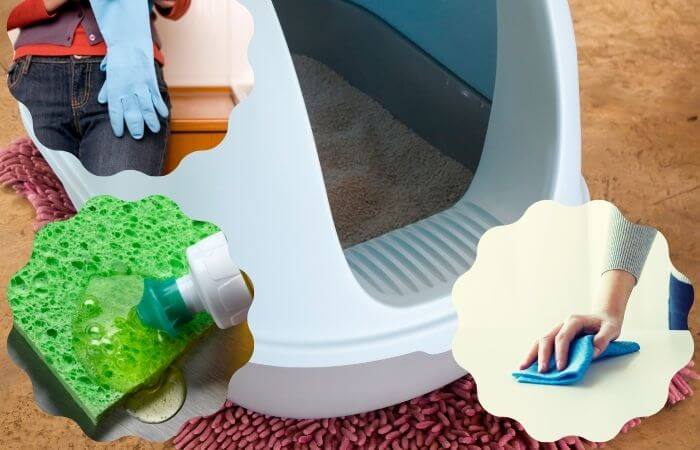

Leave a Comment